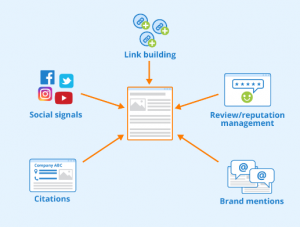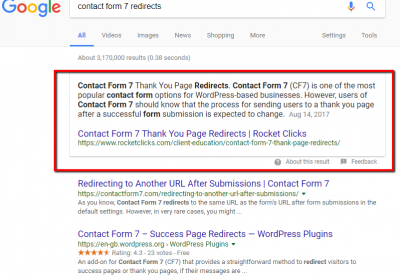
Why do links matter in SEO?
Before we talk about why links are important in SEO let’s first explain what backlinks are:
In Search Engine Optimisation (SEO) backlinks are links from other (third party) websites that point to a website. Backlinks are an important ranking factor used by search engines to determine the quality and authority of a website.
 The more high-quality and relevant backlinks a website has, the more likely it is that search engines will view the website as being authoritative and relevant to users’ search queries, which can lead to higher search engine rankings and increased organic traffic to the site.
The more high-quality and relevant backlinks a website has, the more likely it is that search engines will view the website as being authoritative and relevant to users’ search queries, which can lead to higher search engine rankings and increased organic traffic to the site.
That said, gone are the days when just having loads of backlinks to a website will make it rank higher in Search Engine Result Pages (SERPs). You see, not all backlinks are created equal. Search engines place greater value on backlinks from authoritative and relevant websites in the same industry or niche.
To get the most out of a backlink the anchor text – the text that you can click, should contain a relevant keyword that you are optimising the page and/website for. Internal links, that is links from one page of a website to another also need to have relevant keywords as anchor text, they need to be placed appropriately and drive users to the most relevant page. Without internal links, pages of a website may not be visible to search engines, or at least make it harder for them to be found.
So, to answer the question of “why do links matter in SEO?” we can break it down into three core points:
- Links are a key ranking factor that search engines use to determine the authority, relevance, and popularity of a website and its pages. Search engines view links as a vote of confidence from one website and webpage to another, indicating that the linked content is valuable and relevant to the topic.
- The number and quality of links pointing to a website are considered by search engines as an indicator of its popularity and authority. A website or webpage with a higher number of quality links from other reputable websites is seen as being more authoritative, thus, it is more likely to rank higher in search engine results pages (SERPs) for relevant user search queries.
- Internal and external links play a key role in the discovery and indexing of new pages by search engines. Search engine bots follow links to crawl and index pages on the web, making them available to be displayed in SERPs.
Ultimately links both internal and external are an essential component of SEO because they help search engines understand the context and relevance of a website’s content, and they contribute to its discoverability and ranking in SERPs.
To adhere to Google’s best practice guidelines and build a strong backlink profile requires time, effort, and a strategic approach to outreach and content creation that earns natural backlinks from other websites. There is no get rich quick technique here, shortcuts can have a lasting negative impact that will cost and take a lot more time to undo.
Characteristics of a good backlink profile
 A good backlink profile should be diverse and have links from a mix of high-quality relevant websites. These backlinks should earned through natural high quality content and outreach efforts.
A good backlink profile should be diverse and have links from a mix of high-quality relevant websites. These backlinks should earned through natural high quality content and outreach efforts.
Get in touch to request a backlink audit, we will then advise on the best next steps to grow your backlink profile ethically and in line with Google’s guidelines.
 Pinterest
Pinterest Twitter
Twitter Facebook
Facebook

